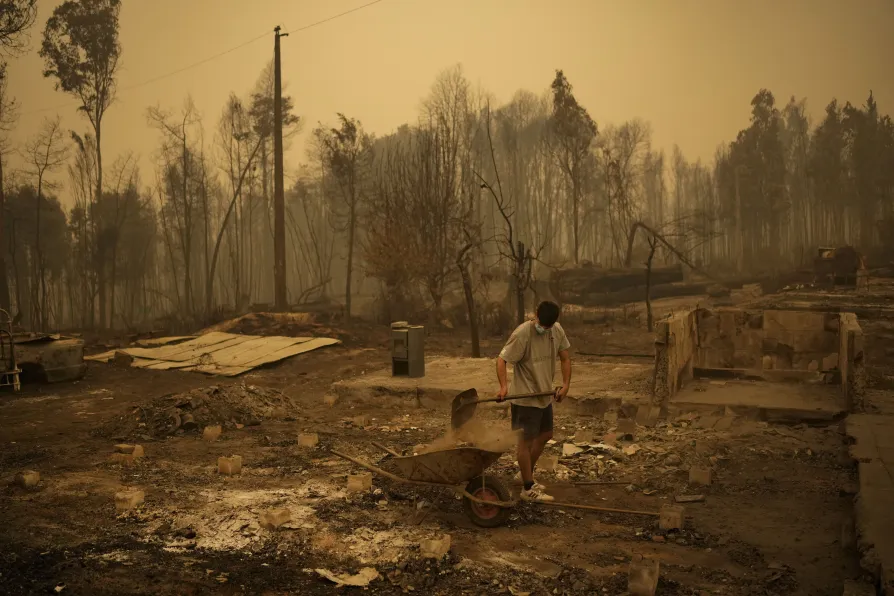
 Yeremy Escanilla works on cleaning the debris of the remains of his house, destroyed by wildfires in Santa Juana, Chile, February 5, 2023
Yeremy Escanilla works on cleaning the debris of the remains of his house, destroyed by wildfires in Santa Juana, Chile, February 5, 2023
THE INTER-AMERICAN Court of Human Rights has issued a landmark advisory opinion on linking governments’ human rights obligations to their responsibility to address the threat of climate change.
Thursday’s opinion is the first of its kind from the region’s top human rights tribunal and responds to a 2023 request from Colombia and Chile.
It says states have a duty under international law to prevent, mitigate and remedy environmental harm that threatens human rights, including through laws, policies and actions aimed at curbing climate change.
The court outlined a series of legal standards, including the recognition of a human right to a healthy climate, the obligation to prevent massive and irreversible environmental harm and a duty to protect the rights of current and future generations.
“The court has declared that we are in a climate emergency that is undermining the human rights of present and future generations and that human rights must be at the centre of any effective response,” Nikki Reisch, director of the climate and energy programme at the Centre for International Environmental Law, told reporters.
The opinion says states have a legal duty not only to avoid environmental harm but also to protect and restore ecosystems, guided by science and Indigenous knowledge.
“This is a historic opinion,” said Ms Reisch.
“It’s not just a legal milestone, it’s a blueprint for action. This opinion will guide climate litigation at the local, regional and national courts and provide a foundation for climate policymaking, grounding local legislation and global negotiations in legal obligation, not just in the Americas but around the world.”
Though not binding, the court’s opinions carry legal weight in many member countries of the Organisation of American States and often influence domestic legislation, judicial rulings and international advocacy.
The findings are expected to bolster climate-related lawsuits and human rights claims in the region and to influence negotiations ahead of Cop30, the next major United Nations climate summit, set to take place in November in Belem, Brazil.

From summit to summit, imperialist companies and governments cut, delay or water down their commitments, warn the Communist Parties of Britain, France, Portugal and Spain and the Workers Party of Belgium in a joint statement on Cop30

Reaching co-operation is supposed to be the beginning, not the end, of global climate governance, argues LISA VANHALA











